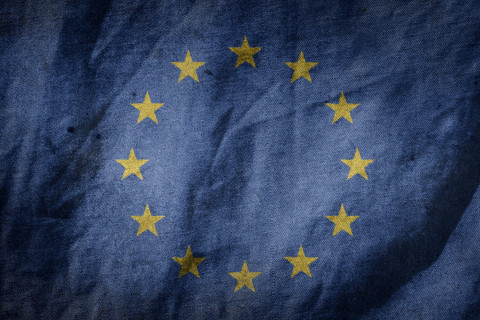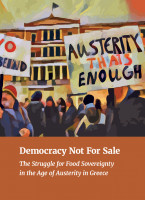Ahead of European elections, eminent jurists call on policy makers to strengthen social rights
Topics
Regions
With EU elections taking place across the continent from May 23-26, eminent jurists are calling on policy makers to urgently commit to strengthening social rights in the economic governance of the European Union.

A decade on from the start of the economic crisis and the roll out of harsh austerity policies across the continent, social rights have suffered enormously – notably the rights to food, housing, health and work. The jurists include former members of constitutional courts, and current or former members of the European Committee of Social Rights and of the UN Committee on Economic, Social and Cultural Rights. They have taken the unprecedented step of calling on EU policy makers to urgently commit to strengthening the position of social rights in the economic governance of the Union.
They argue that “It is no longer time for simply ‘muddling along’, trusting blindly that a strong economic Union will suffice to ensure the survival, if not the flourishing, of our common European destiny.” Their call to action says that if the European project is to maintain its legitimacy, then social rights cannot be sacrificed at the altar of ‘fiscal discipline’.
This unprecedented move underscores the findings of the report ‘Democracy Not For Sale’ published by the Transnational Institute, FIAN International, and Agroecopolis on the impact of austerity on people’s access to food in Greece – perhaps the country that has come to symbolize the sharpest end of the EU’s model of economic governance.
Under the banner of ‘fiscal discipline’, public spending was slashed through reductions in the minimum wage and public pensions. Meanwhile, the pretext of the economic crisis was used to fast-track a number of sweeping reforms to Greece’s food and agricultural system including changes to the agricultural tax code, the selling off of Greece’s only agricultural bank, and the privatization of the country’s network of 13 public food and fish markets.
The impact of this kind of fiscal discipline and economic decision-making can be directly measured in terms of people’s access to food. For example, the report finds that:
• Food insecurity doubled during the years of the crisis, from 7% in 2008 to more then 14% in 2016
• The share of households with children unable to afford a protein-based meal on a daily basis doubled from 4.7% in 2009 to 8.9% in 2014
• The reliance on humanitarian assistance has grown significantly, with at least 200 soup kitchens, food banks and charities operating in 2016 in the prefecture of Attica alone
It is exactly these kinds of measures – taken without any prior human rights impact assessment having been conducted and in the face of civil unrest and democratic rejection - which are emblematic of a European project that has lost its way and which needs to be re-thought.
In their Call to Action, the jurists list four key measures that could be adopted immediately – with no need for treaty or legislative revisions – to bridge the gap between the economic and the social dimensions of European integration.
(1) In the context of the European Semester, EU recommendations should be assessed in terms of their impacts on social rights.
(2) Participation of parliaments, social partners and civil society in the European Semester must be strengthened.
(3) Where the current legal framework already allows deviation from fiscal convergence rules, these should be interpreted so that the need to respect social rights is understood as an “exceptional circumstance” warranting flexibility.
(4) Pending the accession of the EU to the European Social Charter, social rights provisions in the EU Charter of fundamental rights must be interpreted in line with the practice of the European Committee of Social Rights.
The European elections of May 23-26 provide an opportunity for these four measures to be implemented in order to rediscover and redefine the balance between European economic integration and national social protection. As Olivier de Schutter, Member of the UN Committee on Economic, Social and Cultural Rights and one of the signatories of the Call to Action argues, "Europe shall not redeem itself by being modest and by lowering its ambitions: instead, it shall do so by setting the bar high, ensuring that social rights result in shared prosperity and a stronger social fabric of societies. This Call is not a call for less Europe: it is a call for a Europe that is visionary and proud of its founding values".

